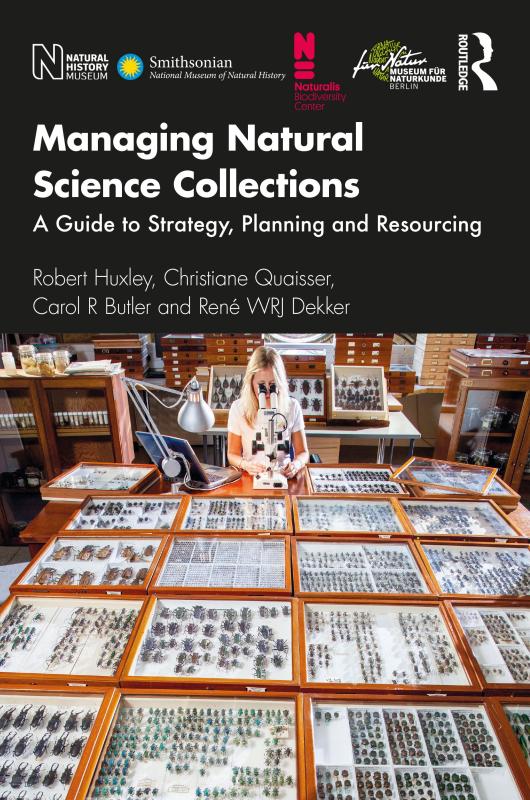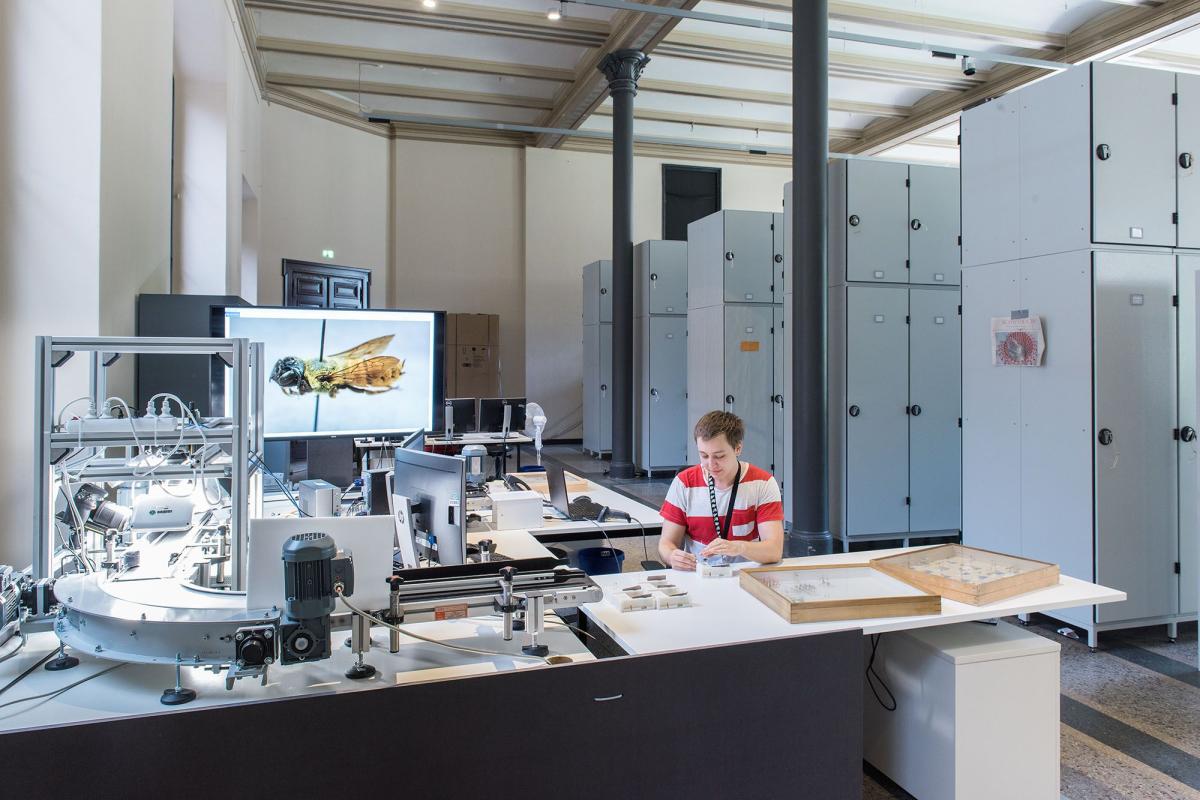The Museum für Naturkunde Berlin expands its research collection as a modern information and research infrastructure. Science, businesses and other stakeholders will be able to access an immense variety of collection and research data worldwide at any time and create new use cases. The recently published guideline "Managing Natural Science Collections" is a blueprint for the further development of the research collection.
The zoological, paleontological and mineralogical collection specimens of the Museum für Naturkunde Berlin are recorded in databases that are used for scientific collection management and research. A wide range of data is generated and processed in all of the museum's research activities. With the complete digitization of its collection with more than 30 million specimens within the next ten years, the amount of publicly available data will increase as never before.
"Our vision is to establish the Museum für Naturkunde Berlin as an internationally visible competence center for integrated research data management, which overcomes disciplinary and geographical boundaries," explains Director General Johannes Vogel. The museum's collection and research data are not only relevant for scientists worldwide, but for all citizens. By opening the collection and making it digitally available, everyone can make a contribution to gaining new benefits from different perspectives – for nature and with a view to solving future societal problems.
One of the challenges for the management of the data is its diversity, from historical information such as location and year of discovery to high-resolution 3D models and CT scans. This diversity meets new uses and applications that are sometimes not yet foreseeable and will emerge worldwide in exchange with science and the public.
Forward-looking collection data management must nevertheless think about new use cases already at an early stage in order to use this potential effectively. The book "Managing Natural Science Collections" encourages practitioners to ask new questions and explore possible options. "It is important to ask the right questions at the right time and to think in terms of possible options instead of antiquated opinions," says Christiane Quaisser, co-author and head of the science programme Collection Development and Biodiversity Discovery at the Museum für Naturkunde Berlin. "This is the only way we can handle future-oriented, efficient and ethical responsibility for our global heritage."
The museum's collection specimens and related information are already available online in international data portals. In addition to its own online offerings, the Museum für Naturkunde Berlin publishes, for example, biological collection data in the global biodiversity data portal Global Biodiversity Information Facility and digital media objects of its collection objects in Europeana.
This year, the Museum für Naturkunde Berlin will be hosting a workshop on the topic of strategic collection management and conservation research. The dates will be published on our event website. An overview of the digital offerings including social media channels can be found here: For Nature digital.
Managing Natural Science Collections. A Guide to Strategy, Planning and Resourcing. Von Robert Huxley, Christiane Quaisser, Carol R Butler und René WRJ Dekker. Published at Routledge. ISBN: 9781138386839
Press pictures
http://download.naturkundemuseum-berlin.de/presse/Sammlungsmanagement
The photos can be used free of charge for reporting in connection with the press invitation by stating the copyright.

